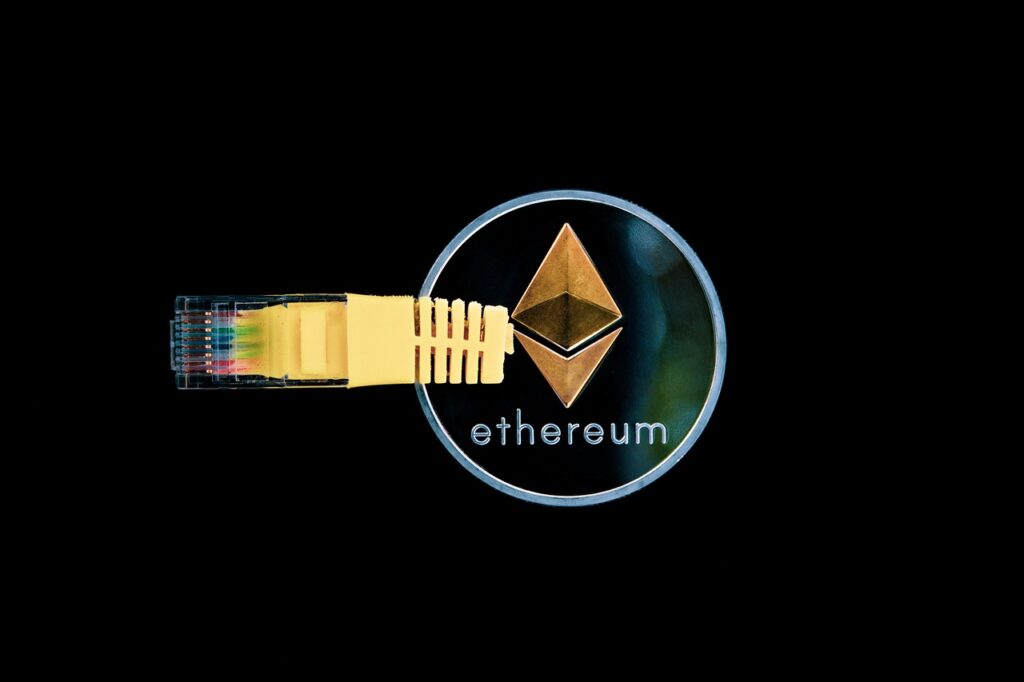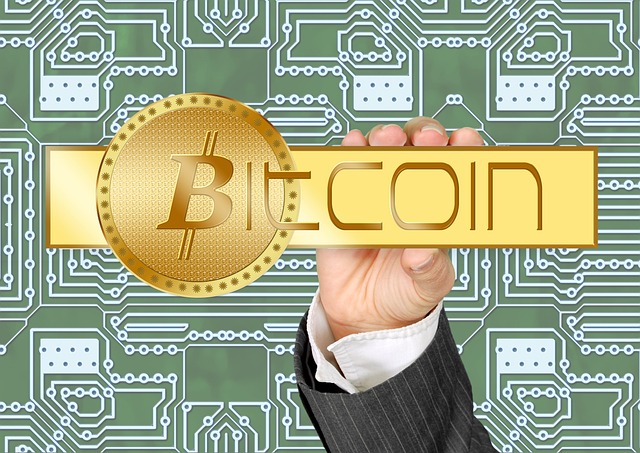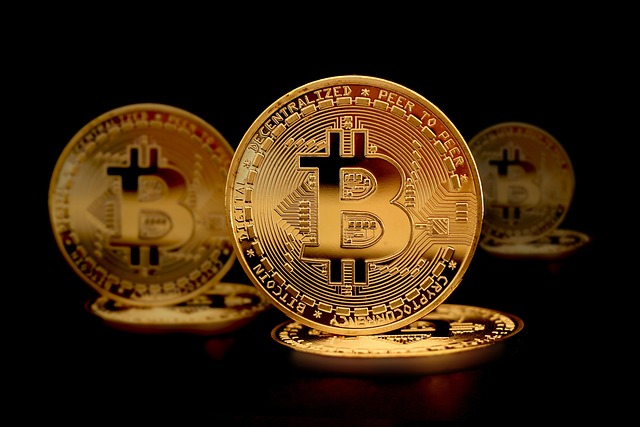DeFi Project Analysis: Evaluating Success Factors
DeFi Project Analysis: Evaluating Success Factors

Understanding the Basics: What is DeFi?
DeFi, short for Decentralized Finance, is a revolutionary concept that aims to transform traditional financial systems by leveraging the power of blockchain technology. Unlike traditional finance, which relies on centralized intermediaries like banks and brokers to facilitate transactions, DeFi operates on a decentralized network, eliminating the need for intermediaries and allowing users to have full control over their funds. It offers a range of financial services, including lending, borrowing, trading, and investing, all conducted in a transparent and secure manner. This decentralized approach ensures that anyone, regardless of their location or background, can access financial services and participate in the global economy.
One of the key characteristics of DeFi is its open and permissionless nature. Unlike traditional finance, where individuals often face numerous barriers and restrictions, DeFi is accessible to anyone with an internet connection. Utilizing smart contracts, which are self-executing contracts with the terms of the agreement directly written into the code, DeFi enables trustless transactions, removing the need for users to rely on a central authority. This not only eliminates the possibility of fraud but also reduces costs and provides a more efficient and inclusive financial ecosystem. By embracing decentralization, DeFi has the potential to revolutionize the financial landscape and empower individuals to take control of their financial destiny.
Identifying the Key Metrics: How to Measure Success in DeFi?
When it comes to measuring success in the decentralized finance (DeFi) space, there are several key metrics that can provide valuable insights. One of the primary metrics to consider is the total value locked (TVL), which represents the amount of cryptocurrency locked in smart contracts within a DeFi protocol. A high TVL indicates that users believe in the project and are willing to commit their assets to it, which can be a strong indicator of success.
Another important metric to consider is the daily active users (DAU), which measures the number of unique users interacting with the DeFi platform on a daily basis. A high DAU indicates that the platform is attracting a large number of users and is able to retain them, which is crucial for long-term success. Additionally, the growth rate of the user base can also be a key metric to evaluate, as it demonstrates the platform’s ability to attract new users and expand its reach in the market. By carefully analyzing these key metrics, we can gain a better understanding of a DeFi project’s potential for success in the ever-evolving world of decentralized finance.
Analyzing the Team: Who is Behind the Project?
When analyzing a DeFi project, one crucial aspect to consider is the team behind it. The team’s composition and experience play a pivotal role in determining the project’s success.

Furthermore, it is crucial to assess the team’s level of transparency and communication. A transparent and communicative team fosters trust and confidence among investors and users. Look for a team that is active in updating the community about project developments, addressing concerns, and providing timely responses to inquiries. Additionally, their engagement in industry events and partnerships can reflect their dedication and commitment to the project’s success. Evaluating the team’s level of involvement and responsiveness can help determine their commitment to project milestones and their ability to overcome challenges effectively.

Assessing the Technology: Is the Project Built on a Solid Foundation?
When it comes to evaluating a decentralized finance (DeFi) project, assessing the technology behind it is crucial in determining whether it is built on a solid foundation. A robust and well-designed technology stack can greatly impact the success and longevity of a DeFi project.
To begin with, it is essential to assess the smart contract infrastructure of the project. Smart contracts serve as the backbone of DeFi applications, executing various functions and governing the flow of assets. Auditing the codebase and ensuring that it has been developed by experienced developers is fundamental. Additionally, considering the scalability and efficiency of the underlying blockchain network is vital. Projects built on top of congested or slow networks may struggle to handle large transaction volumes effectively, leading to potential user dissatisfaction.
Furthermore, the security measures adopted by the project should be thoroughly evaluated.

Examining the Tokenomics: How Does the Token Work?
The tokenomics of a project play a crucial role in determining its success in the decentralized finance (DeFi) space. When evaluating a token, it is important to understand how it functions within the ecosystem. One key aspect to consider is the token’s utility. Is it used as a medium of exchange, granting holders certain rights or privileges, or is it primarily a governance token? Understanding the purpose of the token will help you gauge its value and potential for growth. Additionally, you should examine the token’s distribution and supply. This includes factors such as the total number of tokens in circulation, whether there is a cap on the token supply, and how the tokens are allocated. By analyzing these tokenomics, you can gain insights into the project’s economic sustainability and the fairness of its distribution model.
Another aspect to consider when examining tokenomics is the token’s security and interoperability. Is the token built on a robust and secure blockchain? Does it have the potential to be integrated with other DeFi platforms and applications? These factors can greatly impact the token’s functionality and its ability to be traded or utilized across various platforms. Furthermore, it is important to assess the token’s liquidity. How easily can it be bought or sold on cryptocurrency exchanges? High liquidity can indicate a healthy market for the token, allowing for efficient transactions and price discovery. Evaluating these aspects of tokenomics will provide you with a comprehensive understanding of how the token works and its potential for long-term growth.
Evaluating the Market Demand: Is There a Real Need?
When considering investing in a DeFi project, one key aspect to evaluate is market demand. Is there a genuine need for the product or service offered? Without market demand, a project may struggle to gain traction and achieve long-term success.
To assess market demand, it is essential to examine factors such as industry trends, user adoption, and competition. Are there existing solutions in the market addressing similar needs? If so, what differentiates this project and makes it compelling for users? Additionally, conducting thorough market research and analyzing user feedback can provide valuable insights into the potential demand for the project. By understanding the market demand, investors can make informed decisions and identify projects that are likely to thrive in a competitive landscape.
Assessing Security Measures: How Protected is the Project?
Security is a paramount concern when it comes to evaluating decentralized finance (DeFi) projects. With the growing popularity of DeFi and the increasing value of digital assets involved, it is crucial to assess how well a project is protected against potential security threats. One key aspect to consider is the quality of the project’s code and smart contract design. A thorough review of the codebase can help identify vulnerabilities that may be exploited by attackers. Additionally, it is important to assess the project’s response plans in case of security breaches, including measures such as bug bounties, security audits, and insurance coverage. These precautions can greatly enhance the overall protection of the project and instill confidence among users.
Another critical factor to evaluate is the project’s track record in terms of security incidents. By researching past security breaches or vulnerabilities, it is possible to gauge how well the project has managed such situations. Transparent communication with the community about any previous security incidents is also indicative of a responsible and proactive approach to security. Furthermore, it is essential to assess the project’s governance protocols. A well-designed governance framework can help prevent potential security threats by enabling community voting on important decisions, such as code upgrades or changes in security measures. Overall, a robust security infrastructure is a fundamental requirement for a successful DeFi project and should not be overlooked during the evaluation process.
Analyzing the User Experience: Is the Platform User-Friendly?
When assessing the user experience of a platform in the decentralized finance (DeFi) space, one of the key factors to consider is its user-friendliness. After all, the success of any DeFi platform lies in its ability to attract and retain users. A user-friendly platform makes it easy for individuals to navigate through its features, perform transactions, and access the services they need. From a simple and intuitive layout to clear instructions and guidelines, a user-friendly DeFi platform prioritizes simplicity and ease of use to ensure a positive experience for its users.
In evaluating the user-friendliness of a DeFi platform, it’s essential to consider factors such as the accessibility of the platform across different devices and operating systems. A user-friendly platform should be compatible with various devices, including desktops, laptops, and mobile devices, allowing users to access the platform seamlessly from anywhere. Additionally, the platform should have a responsive design that adapts to different screen sizes and resolutions, providing a consistent and user-friendly experience regardless of the device being used. By prioritizing these elements, DeFi platforms can ensure a smooth and enjoyable user experience, fostering greater user adoption and satisfaction.
Evaluating Community Engagement: How Active is the Community?
Assessing the activity level of a community is a crucial aspect when evaluating a decentralized finance (DeFi) project. A thriving and engaged community can be an indicator of the project’s popularity and potential success. One way to evaluate community engagement is by assessing the frequency and quality of interactions within the project’s social media channels, such as Telegram groups, Discord servers, or community forums. Active communities often have numerous ongoing discussions, debates, and sharing of valuable insights. Additionally, consider the number of active participants and their enthusiasm in supporting the project’s goals. An engaged community that actively participates in discussions, provides feedback, and collaborates with the project’s team is an encouraging sign of a healthy and vibrant ecosystem.
Another aspect to consider while evaluating community engagement is the extent of user-generated content. A highly active community is likely to generate a wealth of content, including informative articles, tutorials, videos, and podcasts related to the project. This indicates that community members are not solely relying on the core team’s contribution but actively invested in sharing knowledge and promoting the project. Furthermore, take into account the presence of community-driven initiatives, such as developer hackathons, meetups, or educational workshops. These activities showcase the community’s dedication to expanding the project’s outreach and fostering innovation within the ecosystem. While assessing community engagement, it becomes evident that a lively and involved community contributes significantly to the overall success and growth of a decentralized finance project.
Considering Regulatory Compliance: Is the Project Compliant with Laws?
When evaluating a decentralized finance (DeFi) project, one crucial aspect to consider is its regulatory compliance. In the world of finance, adhering to established laws and regulations is paramount to ensure the project’s longevity and protect investors. Although the decentralized nature of DeFi can sometimes blur the lines of traditional regulations, it is still essential to assess whether the project has taken appropriate measures to comply with the relevant legal frameworks.
Regulatory compliance can vary greatly depending on the jurisdiction in which the project operates. Some countries have well-defined regulations for the cryptocurrency and decentralized finance space, while others are still in the process of establishing clear guidelines. A comprehensive evaluation of a DeFi project’s compliance should include an analysis of its operations in different jurisdictions and an assessment of how well it aligns with the existing legal frameworks. This evaluation can help determine the project’s overall viability and its ability to withstand regulatory scrutiny in the long term.
• Evaluating regulatory compliance is crucial for the longevity and protection of investors in a decentralized finance (DeFi) project.
• The decentralized nature of DeFi can sometimes challenge traditional regulations, but it’s still important to assess whether the project has taken appropriate measures to comply with relevant legal frameworks.
• Regulatory compliance requirements may vary depending on the jurisdiction in which the project operates.
• Some countries have well-defined regulations for cryptocurrency and decentralized finance, while others are still establishing clear guidelines.
• A comprehensive evaluation should analyze how well the DeFi project aligns with existing legal frameworks in different jurisdictions.
• Assessing regulatory compliance helps determine the overall viability of a DeFi project and its ability to withstand regulatory scrutiny in the long term.
What is DeFi?
DeFi, short for Decentralized Finance, refers to a financial system that operates on blockchain technology, allowing users to access financial services without relying on traditional intermediaries like banks.
How do we measure success in DeFi?
Success in DeFi can be measured by key metrics such as total value locked (TVL), user adoption, trading volume, and the efficiency of smart contracts.
Who is behind the project in DeFi?
The success of a DeFi project depends on the team behind it. It is essential to analyze the experience, expertise, and reputation of the individuals or team members responsible for the project’s development and management.
What should we consider when assessing the technology of a DeFi project?
When evaluating a DeFi project’s technology, it is crucial to assess factors like its scalability, security, interoperability, and the underlying blockchain infrastructure it is built upon.
How does the token work in a DeFi project?
Tokens in a DeFi project often serve multiple purposes, such as governance, utility, or liquidity provision. Understanding how the token functions within the project’s ecosystem is vital to evaluate its potential value and use.
Is there a real need for the DeFi project in the market?
Before investing in or using a DeFi project, it is essential to evaluate whether there is a genuine market demand for the services it offers. Analyzing the feasibility and potential user base can help determine if there is a real need.
How secure is a DeFi project?
Security is a critical aspect of any DeFi project. It is important to assess the security measures implemented, such as smart contract audits, bug bounties, and the project’s track record in handling security incidents.
Is the platform user-friendly for DeFi projects?
A user-friendly interface plays a significant role in the adoption and success of a DeFi project. Evaluating the platform’s user experience, ease of navigation, and accessibility for both beginners and experienced users is essential.
How active is the community in a DeFi project?
Community engagement is an important indicator of a successful DeFi project. Assessing the community’s level of activity, participation in discussions, and the project’s response to user feedback can provide insights into its potential growth and sustainability.
Is the DeFi project compliant with laws and regulations?
Regulatory compliance is crucial for the long-term success and sustainability of a DeFi project. It is important to evaluate if the project adheres to applicable laws and regulations, especially in terms of financial regulations and data privacy.
Todays Featured Product:
Buy, exchange and grow your crypto securely with a Ledger hardware wallet, combined with the Ledger Live app. It’s never been easier to keep your crypto safe and accessible. Buy direct from Ledger.com and get todays Special Offers Here.




